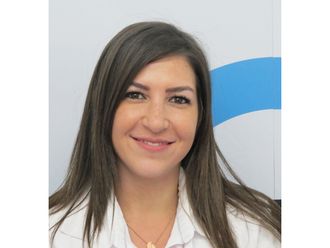
Inequality exists, even in marriages.
This could be because of physical differences, or the fact that one spouse may be more knowledgeable about certain subjects than the other. Studies have shown that couples may have a different perception of the quality of their relationship, or how much each spouse values the marriage.
But, can this asymmetry form a crack in a couple’s bond?
Syeda Maheen Jafri, a banker based in Sharjah, seems to think so. In her opinion, one of the partners could take pride in knowing more about something than the other.
The Pakistani national said: “It all depends on people’s mentality. If, for example, the husband possesses more knowledge owing to a better background, he could value the relationship lesser.”
But, has she experienced asymmetry? “Yes,” she confessed.
There are certain topics that her husband knows more about, such as technology and politics, but transparency is their solution to get past these differences.
She said: “To have a better relationship and trust each other, transparency is vital. It is a partner’s duty to make such a situation less hurtful, or less insulting for the other. Using this asymmetric information to make them feel worse isn’t the way. Enlighten them instead.”
Her husband, Mohammad Umair Atta, a manager of media relations, agreed.
He said: “Asymmetry exists in marriages. But, whether it affects the relationship depends on each individual. In my case, I wouldn’t let it affect my relationship negatively.”
When it comes to arranged marriages, they both believe that asymmetric information would play a role.
Jafri said: “One side could withhold information from the other. This would affect the level of trust and affect the people involved later on in life.”
Analysis:
Harsh Wardhan, an economist based in New Delhi, India, explained that in this situation, the concept of a happy marriage can be thought of as the product.
He told Gulf News: “In most relationships, there is a stronger person and a weaker person. The stronger person can exit the relationship easily. So, we may consider the weaker person to be a buyer of the product.”
In his opinion, if asymmetry exists, the couple’s decision-making “will not be rational”, ultimately leading to an unhappy marriage.
He said: “To avoid this asymmetry, both spouses should incur costs to achieve trust in the relationship and make it more open. If the partners are investing in the relationship, it means they are serious and should be trusted. The costs could be anything, such as giving more time to each other.”
When one spouse feels less important than the other, adjustments have to be made. Wardhan recommends that the weaker person in the situation should have lesser expectations, whereas the spouse should be more open and approachable.
He said: “In arranged marriages, both parties may hide some information to be able to get a more suitable partner. After the marriage, when true information is revealed, it may be devastating for the person with less information.”









